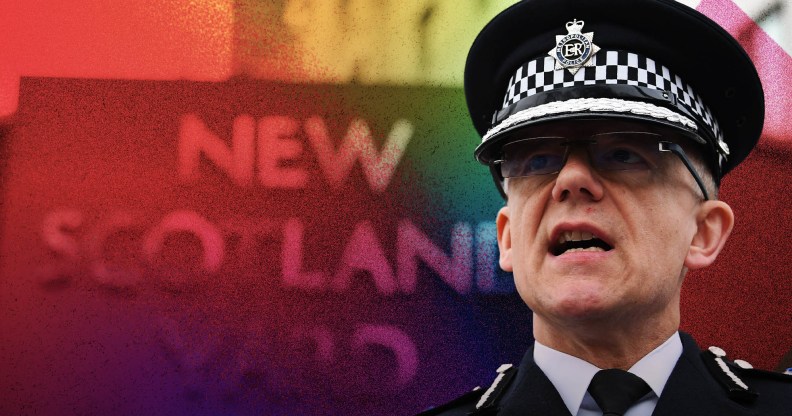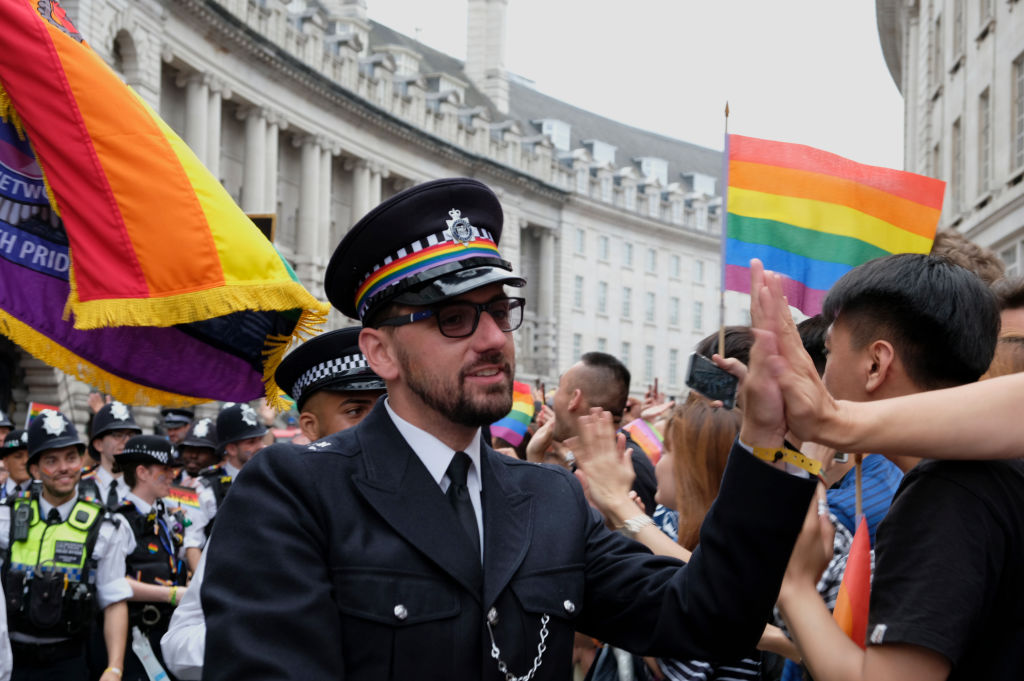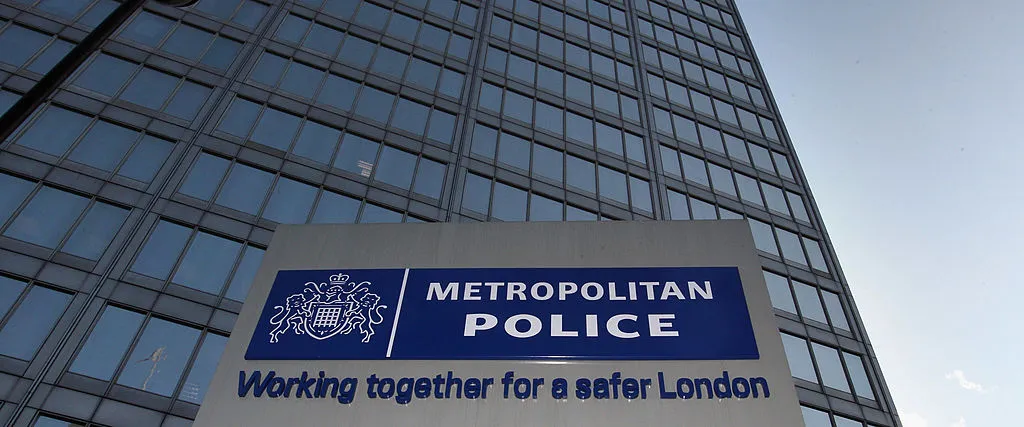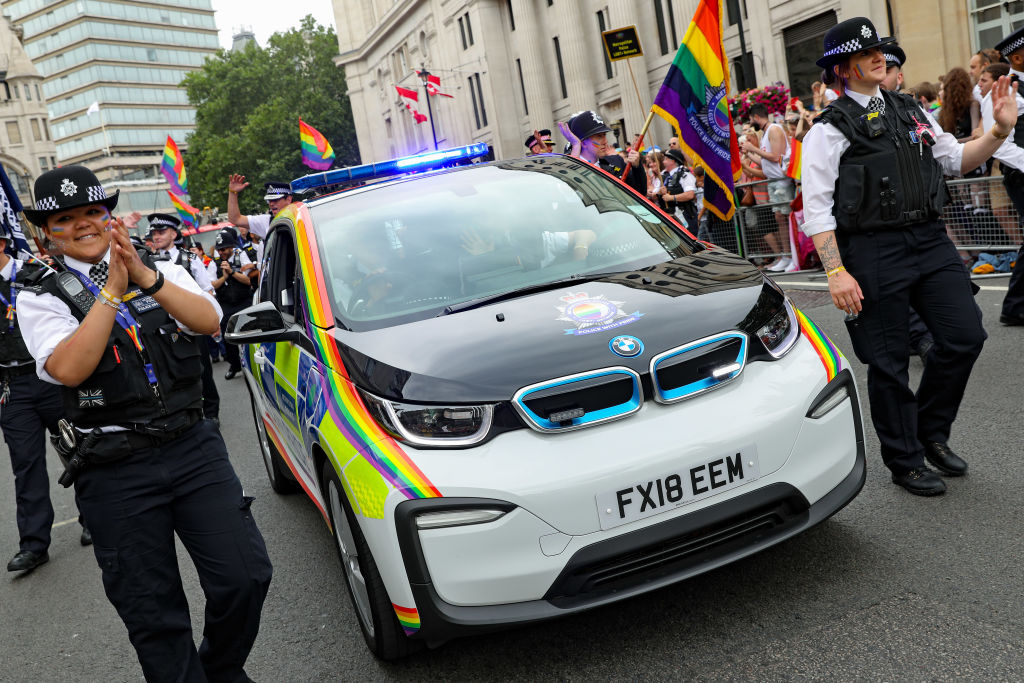Metropolitan Police report: Homophobic officers ‘obsessed’ with gay sex would grill lesbian officers

Met Police commissioner Mark Rowley. (Getty)
LGBTQ+ police officers routinely face homophobia and over-sexualisation within the Metropolitan Police, a damning report has found.
The Baroness Casey review, commissioned in the wake of the murder of Sarah Everard in 2021 by serving firearms office Wayne Couzens, examines the culture and standards in London’s police force.
It has found the Metropolitan Police to be institutionally racist, sexist and homophobic.
Through interviews with LGBTQ+ police officers, the review details the bullying, discrimination and harassment that queer officers deal with in the course of their work.
LGBTQ+ officers serving in the Metropolitan Police reported being asked if they were ‘up for threesomes’, told gay sex was “disgusting”, and had evidenced complaints against senior officers brushed under the carpet.
Of those surveyed, 19 per cent of lesbian, gay and bisexual respondents said they had directly experienced homophobia within the Met. Three in 10 LGBTQ+ staff said they had been bullied compared to just over two in 10 in the overall force.
Queer women reported being asked personal questions about their sex lives in the Met. One said she had been asked “who’s the man in the bedroom?”
Others were questioned over whether they were “up for a threesome” and asked if they were “chatting up” members of the public.

One queer woman recounted how male officers decided that her partner was attractive, and they subsequently put a picture of the woman up in the office as a “poster girl”.
“My response team were obsessed with my sex life,” the woman said.
“They’d ask ‘are you a giver or a taker’ – this would be out in the open … I would laugh it off. I wouldn’t want to cause any grief. You just would not ask somebody that. You would not ask a heterosexual man that question. It’s just offensive.”
“There is a huge issue Met-wide with over-sexualisation of gay and bi women,” one person said.
Straight Metropolitan Police officer said gay sex was ‘disgusting’
In another incident, a straight male police officer told an entire open plan office that gay sex is “disgusting”. Nobody challenged him.
“This kind of behaviour ultimately makes you feel like you don’t belong,” an LGBTQ+ officer said.

In another case, a gay officer recounted his experience of making a complaint against a supervising officer, which was brushed aside despite him having evidence.
The gay officer heard that the supervising officer had made “lewd sexualised comments on a WhatsApp group”. Shortly after, he received a video call from the supervising officer in which he made obscene gestures and asked him about his sexual practices.
The gay officer launched a formal complaint but the misconduct panel found the case was “not proven” for sexual harassment, even though he had screenshots providing proof.
He only found out the case had been deemed unproven through a third party – he was told he wasn’t entitled to find out the outcome of the investigation through official channels.
The officer said he was later prevented from being transferred to a different part of the Met because he had spoken out against wrongdoing.
One officer said he’d witnessed officers groaning when an “LGBT matter” would require attention. Officers would openly ask questions like “why do we have to care about bisexual people” on the staff intranet.
There were also issues with the LGBT+ Staff Support Association, with members expressing frustration that they were expected to deliver training, mediation and support for the Met when dealing with the LGBTQ+ community.

Officers felt they were providing an important service, which prevented them from raising concerns in case the work was taken off them.
Baroness Casey’s wide-ranging Metropolitan Police report, which was published on Tuesday (21 March), also found that the force is failing women and children thanks to a “boys’ club culture” and that frontline policing has been deprioritised and degraded after a decade of austerity.
There were widespread reports of racist, misogynistic and sexually abusive treatment among the Met’s ranks, including senior male officers sexually assaulting female colleagues, a Muslim officer having bacon placed in his boots, and racist slurs being used against a Black officer.
“I absolutely recognise the commitment that Met officers make to protecting the people of our capital city every day,” Baroness Casey said in a statement.
“They put themselves at risk to keep us safe and always deserve our thanks and support.
“But everyone within the Met also now needs to recognise that its failings go well beyond the actions of ‘bad apple’ officers.
“My report makes clear that, on top of the unimaginable crimes of individuals and the shocking series of events that have hit the service in recent years, the way in which the Met has responded to them is also a symptom of a wider malaise in an organisation that has fundamentally lost its way.”
She added: “The Met can now no longer presume that it has the permission of the people of London to police them. The loss of this crucial principle of policing by consent would be catastrophic. We must make sure it is not irreversible.”
Met Police commissioner Mark Rowley has accepted the report’s findings but rejects the use of the term “institutional”, claiming it is political.
He said he was “deeply sorry” for the “appalling examples of discrimination”.
“This report is vivid and it is painful reading. I’m not going to underestimate its significance, the power of it, the scale of reform needed. We all want to fix it. We all know that we have let London down,” Rowley said.

